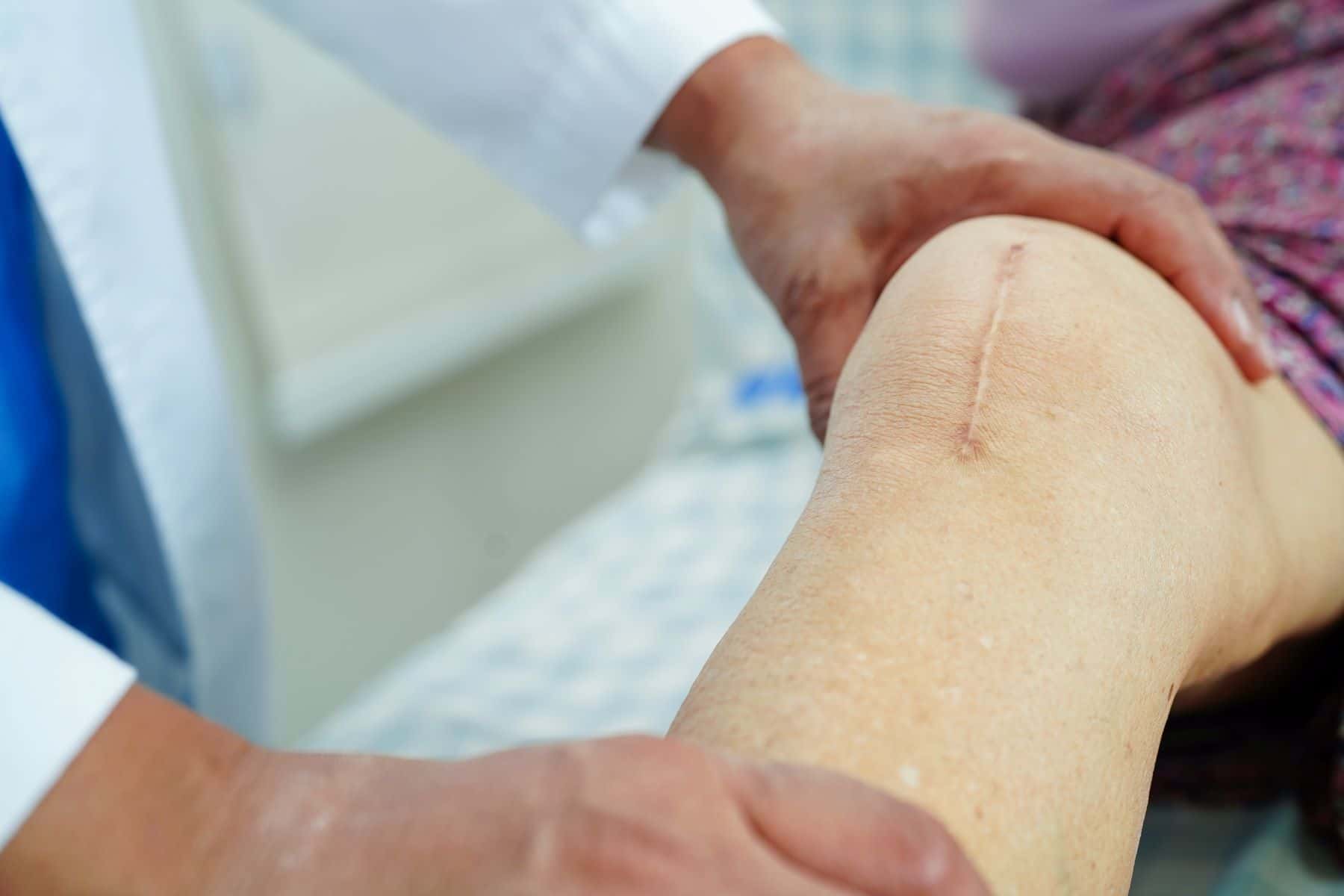Decreased Range of Motion Following Total Knee Replacement
This case study delves into a situation involving an adult patient who experienced complications, including a distal femoral fracture, after a total knee replacement and subsequent manipulation under anesthesia.
Case Overview
This case study involves an adult patient who experienced a decreased range of motion following a total knee replacement. In an attempt to rectify this issue, the patient's surgeon recommended and performed a manipulation under anesthesia procedure. During this intervention, the surgeon observed that the patient's knee could hyperextend. Immediately post-procedure, the patient reported severe pain, rating it as 8 out of 10 on the pain scale. Two days later, the patient presented to the emergency room with persistent pain and swelling at the knee site. An X-ray revealed a distal femoral fracture necessitating open reduction and internal fixation (ORIF). The central question in this case is whether the standard of care was met during these medical interventions.
Questions to the Orthopedic Surgery expert and their responses
How familiar are you with manipulation under anesthesia after a total knee replacement?
As a board-certified orthopaedic surgeon specializing in musculoskeletal oncology, joint replacement, infection, and trauma, I am very familiar with performing manipulations under anesthesia. My practice focuses on complex total joint replacements including complications such as infection, periprosthetic fractures, arthrofibrosis, among others.
How are distal femoral fractures during this procedure prevented?
Distal femur fractures can occur but are rare during these procedures. Prevention involves assessing several parameters before performing the procedure such as time from surgery, what the physical examination demonstrates, quality of tissue, X-rays, and possible causes for complications.
During the procedure itself, one must proceed with caution including proper sedation and muscle relaxation, hand placement, position, and pressure applied. I also place my ear on the knee to listen to the tissue as it stretches.
Have you ever reviewed a similar case? If yes, please elaborate.
Yes, I have reviewed and treated cases similar to this involving fractures and tendon ruptures. My expertise in complex total joint replacements and associated complications makes me well-equipped to provide an informed opinion on this case.
About the expert
This expert is a seasoned orthopedic surgeon with nearly 15 years of experience, board-certified and an active member of professional societies including the American Association of Hip and Knee Surgeons. They have contributed significantly to their field through numerous publications and book chapters, and formerly served as the chief of musculoskeletal oncology at a major medical center. Currently, they hold multiple academic and clinical positions, including assistant professorship at two medical schools, directorship of musculoskeletal oncology and periprosthetic and musculoskeletal infection, and attending physician at several hospitals.

E-454259
Specialties:
About the author
Wendy Ketner, M.D.
Dr. Wendy Ketner is a distinguished medical professional with a comprehensive background in surgery and medical research. Currently serving as the Senior Vice President of Medical Affairs at the Expert Institute, she plays a pivotal role in overseeing the organization's most important client relationships. Dr. Ketner's extensive surgical training was completed at Mount Sinai Beth Israel, where she gained hands-on experience in various general surgery procedures, including hernia repairs, cholecystectomies, appendectomies, mastectomies for breast cancer, breast reconstruction, surgical oncology, vascular surgery, and colorectal surgery. She also provided care in the surgical intensive care unit.
Her research interests have focused on post-mastectomy reconstruction and the surgical treatment of gastric cancer, including co-authoring a textbook chapter on the subject. Additionally, she has contributed to research on the percutaneous delivery of stem cells following myocardial infarction.
Dr. Ketner's educational background includes a Bachelor's degree from Yale University in Latin American Studies and a Doctor of Medicine (M.D.) from SUNY Downstate College of Medicine. Moreover, she is a member of the Board of Advisors for Opollo Technologies, a fintech healthcare AI company, contributing her medical expertise to enhance healthcare technology solutions. Her role at Expert Institute involves leveraging her medical knowledge to provide insights into legal cases, underscoring her unique blend of medical and legal acumen.
Find an expert witness near you
What State is your case in?
Subscribe to our newsletter
Join our newsletter to stay up to date on legal news, insights and product updates from Expert Institute.



